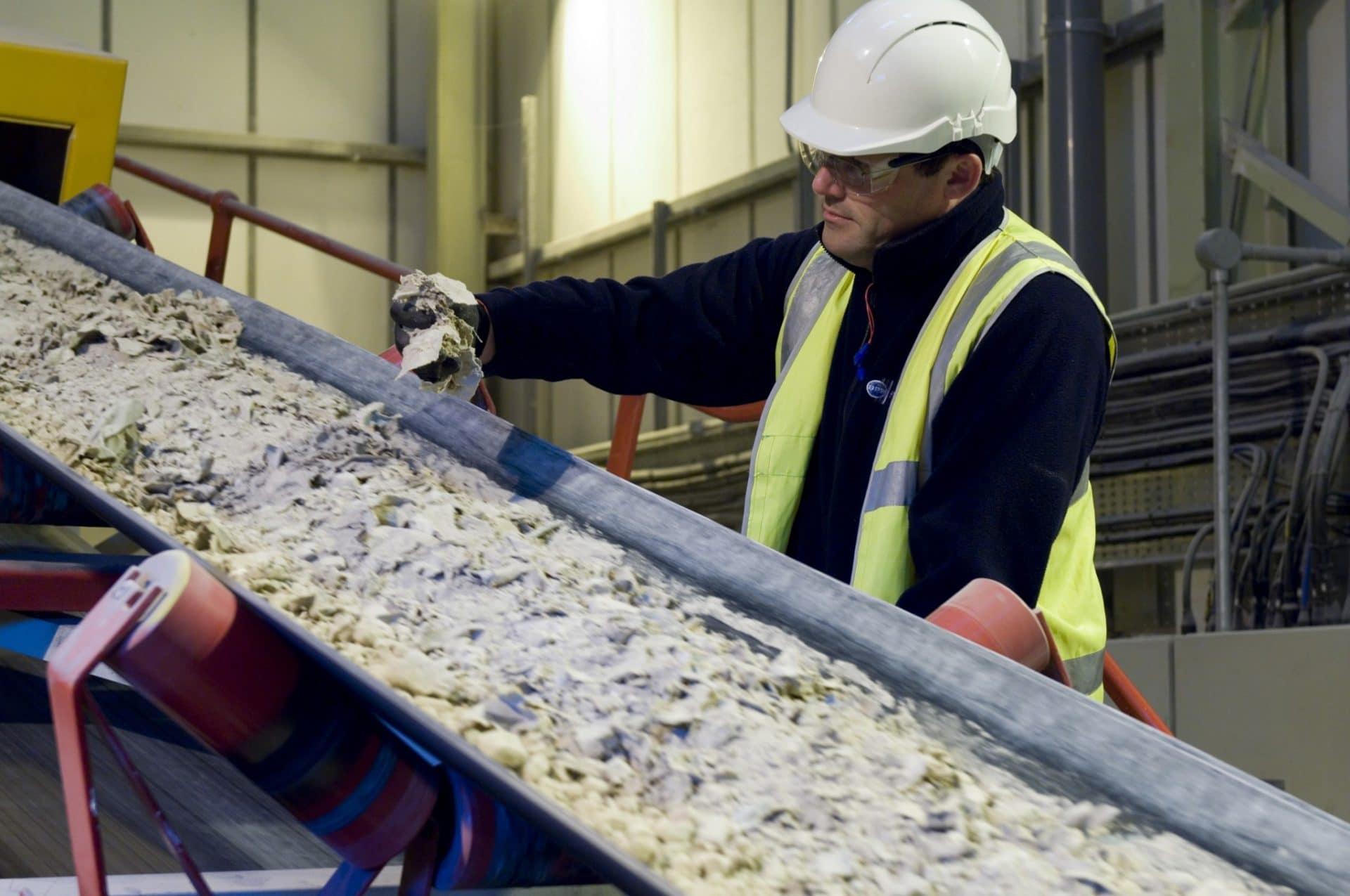The voluntary initiative by UK plasterboard manufacturers covering plasterboard recycling and sustainability has revealed that in 2015 the overall total of recycled waste from production and construction activities was 45.9% to new plasterboard, cement and agricultural use, which is just short of the 50% target. This is a step-change from ten years ago when less than 20% of construction waste was recycled.
The initiative came from the Ashdown Agreement and was led by the Gypsum Products Development Association (GPDA). The initiative was launched with support from WRAP (Waste and Resources Action Programme) and the Department for Environment, Food and Rural Affairs. According to the GPDA, which represents plasterboard manufacturers in the UK, figures for the Agreement’s final year reflect the great efforts that the industry continues to improve its sustainability.
GPDA secretary, Crispin-Dunn Meynell, said: “One disappointing result was a rise in production waste to landfill from zero tonnes throughout the previous five years to 7,644 tonnes in 2015 which can be attributed to restrictions on recycled gypsum’s use for agriculture land. This resulted in a sudden increase in production waste being sent via secondary recyclers to non-hazardous single cell landfill. Manufacturers are working hard to avoid this reoccurring.
Although the Ashdown Agreement has come to the end of its planned life, UK plasterboard manufacturers remain committed to working with industry stakeholders in the UK and throughout Europe to tackle waste throughout the supply chain.
In order to maintain the momentum generated by the Ashdown Agreement the industry has already adopted two new targets under the ongoing Plasterboard Sustainability Partnership (PSP) action plan.
The PSP targets set a 10% carbon reduction in plasterboard manufacturing by 2020 (based on 2010 levels) and increased ‘closed loop’ recycling of C&D waste = post-consumer recycled content to 10% by 2020. The latter represents a step towards the industry’s ultimate goal of closed-loop recycling. Gypsum is amongst the very few construction materials where this is possible, that is where the waste can be used to make the same product again and again. The recent GtoG study found that up to 30% recycled waste content is technically feasible.
To view the Ashdown Agreement’s final Annual Report in full go to www.plasterboardpartnership.org
GPDA represents the four major gypsum board and plaster manufacturers: British Gypsum, Knauf, and Siniat in Britain, and Gyproc in Ireland.


